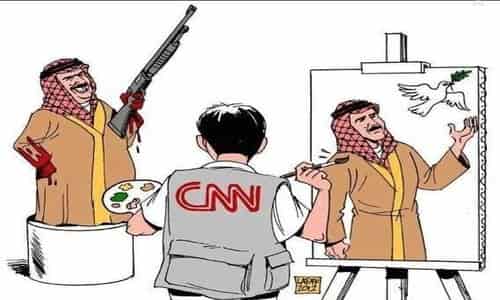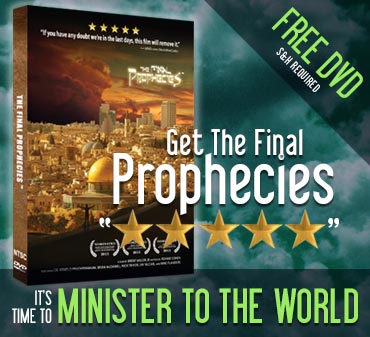Headlines Are The Battleground As Global Media Distort Tel Aviv Terror Attack
 By Alina D. Sharon/JNS.org June 14, 2016
Share this article:
By Alina D. Sharon/JNS.org June 14, 2016
Share this article:
After four Israelis were killed Wednesday in a Palestinian
terrorist shooting at the Sarona market in Tel Aviv, many international
media outlets came under fire for initially reporting misleading
information about the attack and in some cases not describing the
shooting as terrorism.
While many such news headlines and article texts were later
amended, the original phrasing has continued to circulate on social
media and on the websites of media watchdog organizations.
In
a breaking news update about the attack on Twitter, the American cable
news network CNN placed the word "terrorists" in quotation marks,
angering Twitter followers who wondered why the news outlet needed
qualify its description of an incident that was clearly terrorism.
The
CNN tweet said, "Two 'terrorists' captured after Tel Aviv attack,
Israeli police spokesman tweets." One follower responded by calling on
the news network to "take the quote marks off terrorists when that is
exactly what they are! It's not a subjective noun or adjective;
civilians murdered."
Another Twitter user said, "Tell your writers that those who open fire in an open market are terrorists."
A
Washington Post headline stated, "4 Killed in Tel Aviv Market Shooting
that Officials Labeled Terrorist Attack," attributing the terrorist
nature of the incident only to Israeli officials' statements, rather
than acknowledging the terrorist nature as fact.
Yahoo
News described the shooting as an "apparent militant attack" in its
headline as opposed to a terror attack, taking language from another
report by AFP, according to an analysis compiled by the Committee for
Accuracy in Middle East Reporting in America (CAMERA).
What
some commentators considered the most-jarring headline came from
Russia's state-funded English-language news network Russia Today, which
initially reported about the attack with the headline, "2
'ultra-Orthodox Jewish' gunmen kill 3 in central Tel Aviv."
The
headline referred to how the shooters, according to Israeli police,
disguised themselves as Orthodox Jews. Although the reporter used single
quotation marks around "ultra-Orthodox Jewish," the headline could have
still been interpreted to mean that the perpetrators might have been
Jewish.
"Russia Today wins the prize for most
off-the-wall, inaccurate headline," Andrea Levin, CAMERA's executive
director, told JNS.org.
"The unwillingness of
the media to provide clear headlines and, in some cases, forthright
information, is a reminder of the power of bias even when events are
stark and obvious," she said.
Russia Today later changed its headline to, "'Harsh terror attack': 2 Palestinians dressed as Orthodox Jews kill 3 in Tel Aviv."
In the United Kingdom, the British news networks BBC and Sky
News both used language in their reporting that ignored clear facts and
implied that there is uncertainty as to whether this attack--or others
in the wave of Palestinian terror against Israelis that has engulfed
Israel since last September--was orchestrated by Palestinians.
The
BBC, after already quoting Israeli police and witnesses, initially
reported that "it is not clear who carried out the attack.
However,
there has been a rise in Palestinian attacks against Israelis since
last year." The news network also did not use the word terrorism to
describe the attack--except in quotes from Israeli Prime Minister
Benjamin Netanyahu, the police, and witnesses, implying that whether or
not the attack was terrorism is subjective rather than a fact.
Sky
News initially reported in an article about the attack that "since
October, 31 Israelis and two Americans have been killed in attacks
allegedly carried out by Palestinians," using the word "allegedly" to
imply that the Palestinian identity of the terrorists in all those
attacks is debatable, according to the media watchdog HonestReporting.
Also
in the U.K., The British newspaper The Metro reported about the attack
by focusing not on the wounded and murdered victims, but on Israel's
treatment of the Palestinian terrorists, noted UK Media Watch. "Gun
suspect seized after four die," read the newspaper's headline alongside
an image of a bloodied suspect being wrestled to the ground by Israeli
authorities, creating the perception that he was the victim instead of
the perpetrator.
The Independent, said
CAMERA's Levin, "should get a special prize for most-tortured
obfuscation of Palestinian involvement in terrorism. Its story on the
Tel Aviv attack managed never to include the word Palestinian or Arab
even though it was known from the outset and reported widely that two
Arabs were the killers."
A number of news
outlets used headlines focusing heavily on the fact that the attack
occurred near the Israeli Defense Ministry headquarters. France's France
24 network used "Tel Aviv Army HQ" in its headline, implying how the
fact that Israel's defense headquarters were in the vicinity of an
attack targeting innocent civilians somehow justifies the actions of the
terrorists.
The U.K.-based The Telegraph said in its headline, "Four people killed in Tel Aviv shooting near Israeli defense ministry."
The
fact that the two Palestinian gunmen who carried out the attack were
wearing suits also confounded the media. Soon after the shooting, a
photo of two young men in suits surfaced on news outlets and on social
media, alongside claims that they were the terrorists.
Almost
immediately, however, it was revealed that the men in the photo were
actually Israelis and that the photo had been taken last year at the
same site.
One of the men shown in the photo, 21-year-old Tal Hadad from the southern Israeli town of Ezer, said he was "stunned."
"I
don't know what to do," Hadad said. "This picture was taken a year ago
at Sarona. I have no idea how [the media] got a hold of it."
So
what might be the takeaway from the news reporting and headlines on the
Tel Aviv terror attack? One Twitter user told CNN after its placement
of "terrorists" in quotation marks, "This is the reason why no one
trusts 'news' anymore."

No comments:
Post a Comment